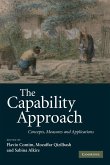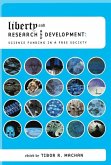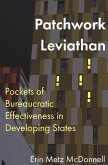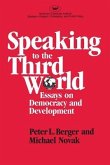- Broschiertes Buch
- Merkliste
- Auf die Merkliste
- Bewerten Bewerten
- Teilen
- Produkt teilen
- Produkterinnerung
- Produkterinnerung
This book uses data to identify failures in efforts to build state capability in development, employs theory to explain why these failures are common and likely to persist, and builds on applied experience to offer a new approach to build state capability more effectively.
Andere Kunden interessierten sich auch für
![Building Equitable Cities Building Equitable Cities]() Janis BowdlerBuilding Equitable Cities21,99 €
Janis BowdlerBuilding Equitable Cities21,99 €![The Capability Approach The Capability Approach]() The Capability Approach81,99 €
The Capability Approach81,99 €![British Renaissance 1979 British Renaissance 1979]() A. A. WaltersBritish Renaissance 197912,99 €
A. A. WaltersBritish Renaissance 197912,99 €![Liberty and Research and Development Liberty and Research and Development]() Liberty and Research and Development14,99 €
Liberty and Research and Development14,99 €![Patchwork Leviathan Patchwork Leviathan]() Erin Metz McDonnellPatchwork Leviathan39,99 €
Erin Metz McDonnellPatchwork Leviathan39,99 €![Who Owns Poverty? Who Owns Poverty?]() Martin BurtWho Owns Poverty?17,99 €
Martin BurtWho Owns Poverty?17,99 €![Speaking to the Third World: Essays on Democracy and Development Speaking to the Third World: Essays on Democracy and Development]() Peter L. BergerSpeaking to the Third World: Essays on Democracy and Development11,99 €
Peter L. BergerSpeaking to the Third World: Essays on Democracy and Development11,99 €-
-
-
This book uses data to identify failures in efforts to build state capability in development, employs theory to explain why these failures are common and likely to persist, and builds on applied experience to offer a new approach to build state capability more effectively.
Hinweis: Dieser Artikel kann nur an eine deutsche Lieferadresse ausgeliefert werden.
Hinweis: Dieser Artikel kann nur an eine deutsche Lieferadresse ausgeliefert werden.
Produktdetails
- Produktdetails
- Verlag: Oxford University Press (UK)
- Seitenzahl: 280
- Erscheinungstermin: 5. Februar 2020
- Englisch
- Abmessung: 232mm x 155mm x 16mm
- Gewicht: 414g
- ISBN-13: 9780198853039
- ISBN-10: 0198853033
- Artikelnr.: 58353121
- Herstellerkennzeichnung
- Libri GmbH
- Europaallee 1
- 36244 Bad Hersfeld
- gpsr@libri.de
- Verlag: Oxford University Press (UK)
- Seitenzahl: 280
- Erscheinungstermin: 5. Februar 2020
- Englisch
- Abmessung: 232mm x 155mm x 16mm
- Gewicht: 414g
- ISBN-13: 9780198853039
- ISBN-10: 0198853033
- Artikelnr.: 58353121
- Herstellerkennzeichnung
- Libri GmbH
- Europaallee 1
- 36244 Bad Hersfeld
- gpsr@libri.de
Matt Andrews is Associate Professor of Public Policy. His research focuses on public sector reform, particularly budgeting and financial management reform, and participatory governance in developing and transitional governments. Recent articles focus on forging a theoretical understanding of the nontechnical factors influencing success in reform processes. Specific emphasis lies on the informal institutional context of reform, as well as leadership structures within government-wide networks. This research developed out of his work in the provincial government of Kwa-Zulu Natal in South Africa and more recently from his tenure as a Public Sector Specialist working in the Europe and Central Asia Region of the World Bank. He brings this experience to courses on public management and development. He holds a BCom (Hons) degree from the University of Natal, Durban (South Africa), an MSc from the University of London, and a PhD in Public Administration from the Maxwell School, Syracuse University. Lant Pritchett is Professor of the Practice of International Development at the Kennedy School of Government at Harvard University. In addition, he is a Senior Fellow of the Center for Global Development. He was co-editor of the Journal of Development Economics and worked as a consultant to Google.org. He has held a number of positions at the World Bank and has been part of the team who produce many World Bank reports, including: World Development Report 1994; Assessing Aid: What Works, What Doesn't and Why (1998); Better Health Systems for India's Poor (2003); World Development Report 2004; and Economic Growth in the 1990s (2005). In addition he has authored and co-authored over 50 papers that have been published in refereed journals and edited volumes. In 2006 he published his first single-authored book, Let Their People Come, and in 2013 his second, The Rebirth of Education: Schooling Ain't Learning. Michael Woolcock is Lead Social Development Specialist in the World Bank's Development Research Group. He is also a (part-time) Lecturer in Public Policy at Harvard University's Kennedy School of Government. His current research focuses on strategies for enhancing state capability for implementation, on crafting more effective interaction between informal and formal justice systems, and on using mixed methods to assess 'complex' development interventions. In addition to more than 50 journal articles and book chapters, he is the co-author or co-editor of seven books, including Contesting Development: Participatory Projects and Local Conflict Dynamics in Indonesia (with P. Barron and R. Diprose; Yale University Press 2011), which was a co-recipient of the best book prize by the American Sociological Association's section on international development. He has served for many years on the World Bank's Social Development Board and co-founded the Justice for the Poor program.
* Introduction: 'The Long Voyage of Discovery'
* Part 1. The Problem: The Creation and Consolidation of Capability
Traps
* 1: The Big Stuck in State Capability
* 2: Looking Like a State: The Seduction of Isomorphic Mimicry
* 3: Premature Load Bearing: Doing Too Much Too Soon
* 4: Capability for Policy Implementation
* 5: What Type of Organization Capability is Needed?
* Part 2. A Strategy for Action: Problem-Driven Iterative Adaptation
(PDIA)
* 6: The Challenge of Building (Real) State Capability for
Implementation
* 7: Doing Problem-Driven Work
* 8: The Searchframe: Doing Experimental Iterations
* 9: Managing Your Authorizing Environment
* 10: Building State Capability at Scale Through Groups
* Part 1. The Problem: The Creation and Consolidation of Capability
Traps
* 1: The Big Stuck in State Capability
* 2: Looking Like a State: The Seduction of Isomorphic Mimicry
* 3: Premature Load Bearing: Doing Too Much Too Soon
* 4: Capability for Policy Implementation
* 5: What Type of Organization Capability is Needed?
* Part 2. A Strategy for Action: Problem-Driven Iterative Adaptation
(PDIA)
* 6: The Challenge of Building (Real) State Capability for
Implementation
* 7: Doing Problem-Driven Work
* 8: The Searchframe: Doing Experimental Iterations
* 9: Managing Your Authorizing Environment
* 10: Building State Capability at Scale Through Groups
* Introduction: 'The Long Voyage of Discovery'
* Part 1. The Problem: The Creation and Consolidation of Capability
Traps
* 1: The Big Stuck in State Capability
* 2: Looking Like a State: The Seduction of Isomorphic Mimicry
* 3: Premature Load Bearing: Doing Too Much Too Soon
* 4: Capability for Policy Implementation
* 5: What Type of Organization Capability is Needed?
* Part 2. A Strategy for Action: Problem-Driven Iterative Adaptation
(PDIA)
* 6: The Challenge of Building (Real) State Capability for
Implementation
* 7: Doing Problem-Driven Work
* 8: The Searchframe: Doing Experimental Iterations
* 9: Managing Your Authorizing Environment
* 10: Building State Capability at Scale Through Groups
* Part 1. The Problem: The Creation and Consolidation of Capability
Traps
* 1: The Big Stuck in State Capability
* 2: Looking Like a State: The Seduction of Isomorphic Mimicry
* 3: Premature Load Bearing: Doing Too Much Too Soon
* 4: Capability for Policy Implementation
* 5: What Type of Organization Capability is Needed?
* Part 2. A Strategy for Action: Problem-Driven Iterative Adaptation
(PDIA)
* 6: The Challenge of Building (Real) State Capability for
Implementation
* 7: Doing Problem-Driven Work
* 8: The Searchframe: Doing Experimental Iterations
* 9: Managing Your Authorizing Environment
* 10: Building State Capability at Scale Through Groups








